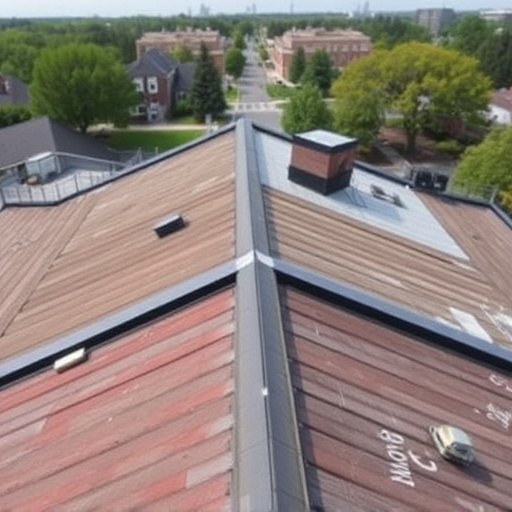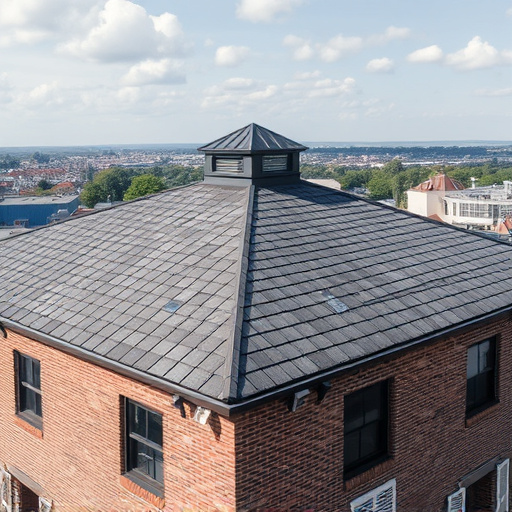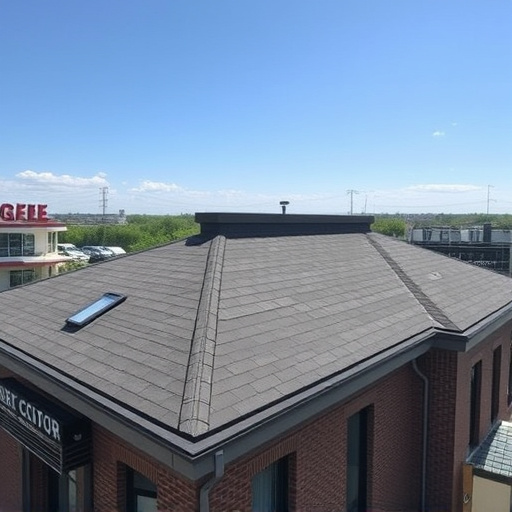Selecting roofing materials requires guidance from a specialist to balance climate, durability, aesthetics, and maintenance costs. Factors like snowfall, wind, and local building codes dictate choices, influencing longevity and visual appeal. From asphalt shingles to metal or tile, professionals guide optimal selection for residential or commercial properties.
When it comes to selecting roof materials, a roofing specialist knows that it’s not just about aesthetics. Understanding your roof’s role in protecting your home from the elements is crucial. This guide, crafted by industry experts, will walk you through the process of choosing durable and suitable roof materials. From assessing your roof’s exposure to weighing the pros and cons of popular options, we’ll provide insights to help you make an informed decision with the guidance of a roofing specialist.
- Understanding Your Roof's Role and Exposure
- Exploring Common Roofing Materials: Pros and Cons
- Factors to Consider When Choosing Roof Materials
Understanding Your Roof's Role and Exposure

A roofing specialist will often advise that understanding your roof’s role and exposure is crucial before selecting materials. A roof acts as a protective barrier against harsh weather conditions, extreme temperatures, and environmental elements. It safeguards your home from rain, snow, wind, and sun, all while keeping out unwanted intruders like pests and debris. Therefore, the right roofing material should be chosen based on your region’s climate and specific exposure to these elements.
For instance, if you live in an area prone to heavy snowfall, a roofing specialist might recommend materials that offer superior insulation to prevent heat loss. Conversely, if your home is exposed to strong winds, siding and gutters that are securely fastened and wind-resistant are essential. Home service solutions can provide guidance on the best choices for your location, ensuring long-lasting protection and reduced maintenance concerns over time.
Exploring Common Roofing Materials: Pros and Cons

When it comes to choosing roof materials, roofing specialists often recommend considering both functionality and aesthetics. The most common options include asphalt shingles, metal roofing, tile roofs, and wood shakes or shingles. Each material has its unique pros and cons.
Asphalt shingles, for instance, are affordable and easy to install, making them a popular choice. They also offer a wide range of styles and colors. However, they have a shorter lifespan compared to other materials and may not be as durable against extreme weather conditions. Metal roofing, on the other hand, is known for its longevity and resistance to corrosion but can be more expensive and challenging to install. Tile roofs provide excellent durability and a classic aesthetic appeal but are heavier and more prone to damage from heavy winds or falling debris. Wood shakes or shingles offer a natural look but require regular maintenance to prevent rot and insect infestations. Choosing the right material, guided by a professional siding repair or replacement specialist, is crucial for ensuring your roof’s functionality, longevity, and visual appeal.
Factors to Consider When Choosing Roof Materials

When choosing roof materials, several key factors come into play. A roofing specialist recommends starting with your climate and local building codes. Different regions have varying weather patterns and regulations, impacting material selection. For instance, areas prone to heavy snowfall may require sturdier, snow-resistant shingles, while coastal zones might demand materials that can withstand high winds and salty air.
Additionally, consider the structural integrity of your building, as well as aesthetics and long-term maintenance costs. Commercial siding installation or replacement is a significant investment, so balancing durability with style is essential. A roofing specialist can guide you through options, from traditional asphalt shingles to more advanced materials like metal or tile, each offering unique benefits tailored to specific needs, whether for residential or commercial properties.
When selecting roof materials, consult a roofing specialist to ensure your decision aligns with your structural needs and environmental exposure. By understanding the pros and cons of each material and factoring in key considerations, you’ll make an informed choice that protects your home for years to come. This expert guidance is invaluable, ensuring your roof performs optimally as a crucial component of your property’s overall defense against the elements.














